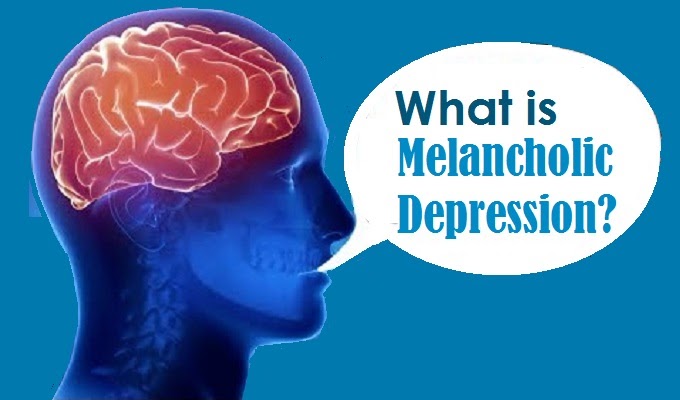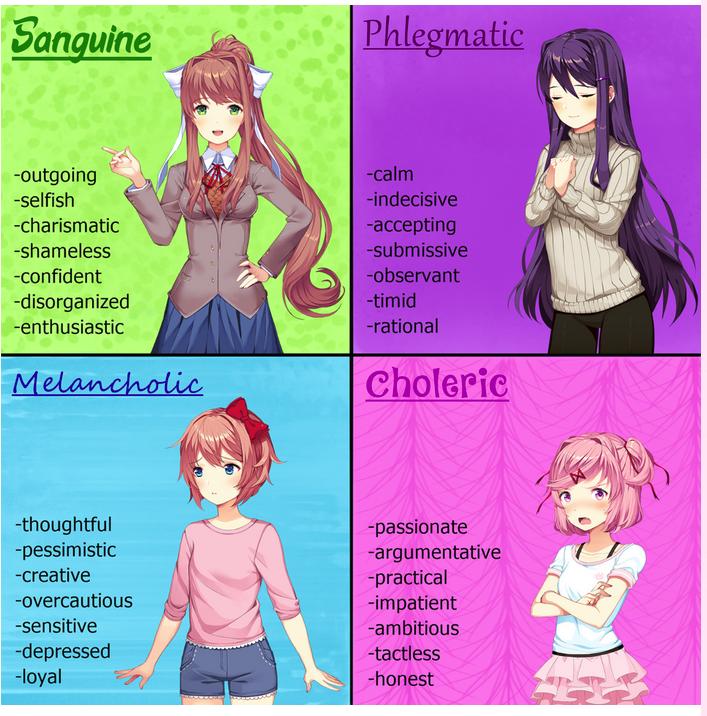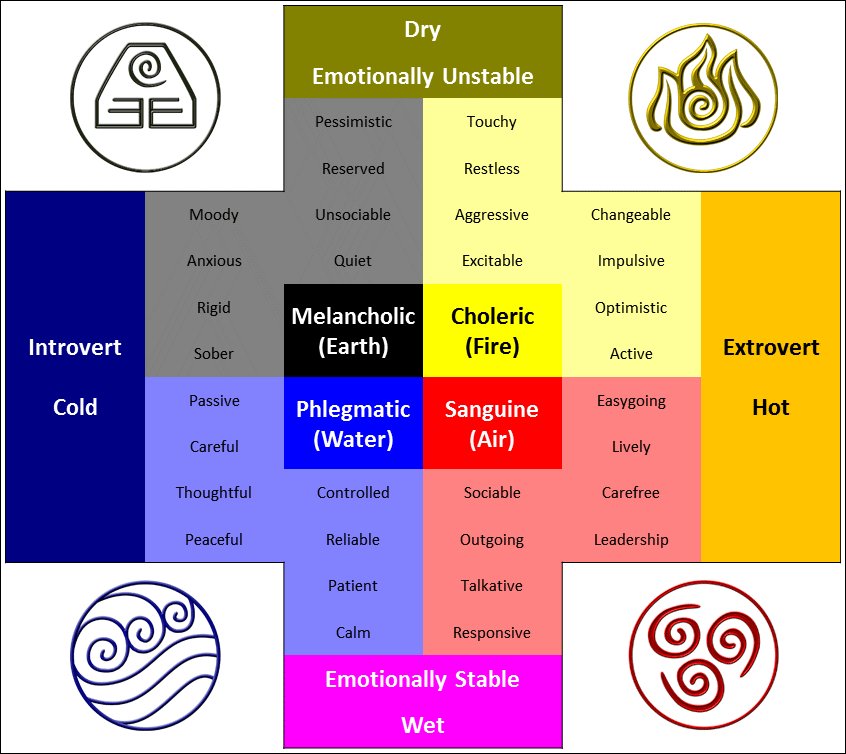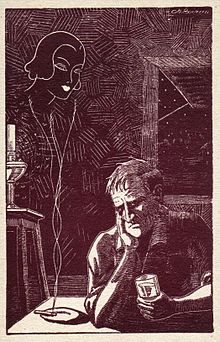Mental health is often a taboo topic for many people. This is probably because mental health conditions can be difficult to understand and deal with. One such condition is melancholia. In this blog post, we will discuss what melancholia is (what is melancholia), its types, symptoms, causes, and treatment options. We will also hear from experts about their views on this condition. So, if you are interested in learning more about it, keep reading!
Contents
Understanding Melancholia

Melancholia is a mental health condition that is characterized by feelings of sadness, despair, and hopelessness. People who are suffering from this condition may also experience changes in their mood, sleeping patterns, appetite, and energy levels.
Types Of Melancholia
There are two main types of melancholia: reactive and endogenous.
- Reactive melancholia is triggered by an event or situation that is upsetting or stressful. Example: A person who has lost their job may experience reactive melancholia.
- Endogenous melancholia is not triggered by any specific event or situation. It tends to be the result of a combination of genetic, psychological, and environmental factors. Example: A person who has a family history of depression may be more likely to develop endogenous melancholia.
NOTE: Endogenous melancholia occurs spontaneously and tends to be more severe than reactive melancholia.
Degrees Of Melancholia
There are three degrees of melancholia: mild, moderate, and severe.
Mild melancholia: It is characterized by symptoms such as sadness, despair, and hopelessness that are not very intense and do not interfere with a person’s everyday life.
Moderate melancholia: It is characterized by symptoms that are more intense than those seen in mild melancholia and that interfere with a person’s everyday life.
Severe melancholia: It is characterized by symptoms that are so severe that they significantly impair a person’s ability to function normally.
Symptoms Of Melancholia

The symptoms of this condition can vary from person to person. However, some of the most common symptoms include:
Feeling hopeless and helpless: People with melancholia may feel like they can’t do anything to improve their situation and that things will never get better.
Feeling sad, anxious, or irritable most of the time: People with melancholia often have a low mood that lasts for most of the day.
Having problems sleeping: People with melancholia may have difficulty falling asleep or staying asleep.
Experiencing changes in appetite: People with melancholia may lose their appetite or eat more than usual.
Feeling tired and sluggish: People with melancholia often feel very tired and have no energy.
Having thoughts of death or suicide: A person with melancholia may have thoughts about harming themselves or even taking their own life.
Having difficulty enjoying activities that were once pleasurable: People with melancholia may no longer enjoy activities that they used to enjoy.
Reasons/ Risk Factors Of Melancholia
There is no single cause of melancholia. Rather, it is the result of a combination of genetic, psychological, and environmental factors.
Psychological factors: Stressful life events or situations can trigger melancholia. For example, a person who has lost their job may experience reactive melancholia.
Genetic factors: Melancholia may be more likely to occur if you have a family history of depression or other mental health conditions.
Environmental factors: Exposure to certain environmental triggers, such as pollution or conflict, can increase your risk of developing melancholia.
Lifestyle factors: Smoking, using drugs or alcohol excessively, and being isolated from others can all increase your risk of developing melancholia.
Living with a chronic illness: People with a chronic illness, such as cancer or HIV/AIDS, are at increased risk of developing melancholia.
Marital status: People who experience separation or loss of a spouse are more likely to develop melancholia.
Age: People who are older than 60 years are more likely to develop melancholia.
Gender: Women are more likely to develop melancholia than men.
Personality Types Prone To Melancholia

There is no one “type” of person who is more likely to develop melancholia. However, people who are introverted and perfectionistic may be at increased risk.
There are a few possible reasons why people who are introverted and perfectionistic may be more likely to develop melancholia.
- Introverts may be more prone to melancholia because they tend to keep their feelings bottled up inside, which can lead to depression.
- Perfectionists may be more prone to melancholia because they often set high standards for themselves. Consequently, they never reach satisfaction with their efforts, which can lead to frustration and depression.
History And Development Of Melancholia
The history of melancholia can be traced back to the ancient Greeks. The word “melancholia” is derived from the Greek words “meals” (black) and “chole” (bile).
- The first recorded description of melancholia was by Hippocrates in 430 BC. He believed that melancholia was caused by an imbalance of the four bodily fluids (blood, phlegm, yellow bile, and black bile).
- In the 1700s, melancholia was thought to be a form of madness. People with melancholia were often locked up in mental institutions.
- In the 1800s, there was a shift in thinking about melancholia. It was now believed to be a form of depression.
- In the early 1900s, Sigmund Freud described melancholia as an “introverted mourning” in which the person withdraws from the world and focuses on their feelings of loss and sadness.
Today, we have a better understanding of melancholia and we know that it is a serious mental health condition.
Living With Melancholia

Living with melancholia can be very challenging. The symptoms can significantly impair a person’s ability to function normally and affect their relationships with others.
Its Impact On Life
People with this condition often have difficulty functioning day-to-day. They may be unable to take care of themselves due to fatigue and low energy. They may also have difficulty maintaining relationships or their job or attending school.
Its Impact On Work-life
People with this condition may have difficulty maintaining their job due to their symptoms. They may be unable to concentrate or focus, which can make it difficult to do their work. They may also be less productive than usual and take more sick days.
Its Impact On Relationships
People with this condition may have difficulty maintaining relationships due to their symptoms. They may be irritable and moody, which can make it difficult for others to interact with them. They may also lose interest in activities that they used to enjoy, which can further isolate them from others.
Its Impact On Mental Health
People with this condition are at risk for developing other mental health conditions, such as anxiety or substance abuse.
Its Impact On Physical Health
People with this condition are also at risk for developing physical health conditions, such as heart disease, stroke, and diabetes.
Creativity And Melancholia

There is a longstanding link between this condition and creativity. Many famous artists, writers, and musicians have suffered from this condition.
Artists
Vincent van Gogh: suffered from severe bouts of melancholia and eventually committed suicide.
Frida Kahlo: suffered from depression and chronic pain, which she often depicted in her artwork.
Wolfgang Amadeus Mozart: was said to have been moody and irritable, which may have been due to his undiagnosed case of melancholia.
Writers
Virginia Woolf: suffered from severe bouts of melancholia and eventually committed suicide.
Ernest Hemingway: was said to have had a “black dog” that followed him around, which is a term used to describe depression.
Sylvia Plath: struggled with bipolar disorder and killed herself shortly after publishing her most famous work, The Bell Jar.
Musicians
Ludwig van Beethoven: suffered from severe bouts of melancholia and was eventually completely deaf.
Robert Schumann: had a mental breakdown after composing his famous work, Fantasy in C major. He went through institutionalization post the composition.
Ray Charles: battled drug addiction and depression for most of his life.
Understanding The Link
We do not fully understand how this condition results in creativity. However, there are a few possible explanations.
- One theory is that people with this condition are more in touch with their feelings and emotions than other people. This may allow them to access creative ideas and thoughts that other people would not be able to access.
- Another theory is that people with this condition are more sensitive to their environment and the world around them. This may allow them to see things in a different light and come up with new and innovative ideas.
NOTE: It is important to note that there is a distinction between melancholia and depression. The latter is a more common condition and can be mild or severe. The former, on the other hand, is a more severe form of depression.
Coping With Melancholia

There are several things that people can do to help cope with this condition.
Self-help Tips
Here are some self-help tips for managing this condition:
Talk to someone you trust about how you’re feeling: Talking to someone can help you feel better and can also be a way to get support.
Eat healthily: Eating healthy foods can help boost your mood and energy levels.
Get enough sleep: Getting enough sleep is important for overall health and well-being.
Exercise: Exercise can help improve your mood and energy levels.
Stay connected to friends and family members: Staying connected to friends and family members can help reduce feelings of isolation.
Avoid drinking alcohol and using drugs: Using alcohol or drugs can make symptoms of this condition worse.
Seek professional help: If you find that you’re struggling to cope with your symptoms, it’s important to seek professional help.
Talking To A Professional
If people are struggling to cope with their symptoms, they should talk to a professional. Many different types of professionals can help, such as psychiatrists, psychologists, and social workers.
Treatment Options
There are several different treatment options available for people with this condition. Treatment options vary depending on the severity of the condition and may include:
- Medications,
- Psychotherapy, or
- Electroconvulsive therapy.
Therapy Options
Several different therapies can be helpful for people with this condition. Some of the most common therapies include:
Cognitive-behavioral therapy (CBT): CBT is a type of therapy that helps people change the way they think and behave.
Interpersonal psychotherapy (IPT): IPT is a type of therapy that focuses on the relationships between people.
Family therapy: Family therapy involves working with family members to help improve communication and dynamics within the family.
Electroconvulsive therapy: Electroconvulsive therapy (ECT) is a type of therapy that uses electrical currents to cause a seizure. There are two different types of ECT: unilateral and bilateral.
- Unilateral ECT: Unilateral ECT involves delivering electrical currents to one side of the brain.
- Bilateral ECT: Bilateral ECT involves delivering electrical currents to both sides of the brain.
ECT is a treatment that has been used for many years and is thought to work by causing changes in the brain. Though experts do not fully understand how it works. But a common consensus is that it helps improve mood by affecting certain chemicals in the brain.
NOTE: When choosing a therapy, it’s important to consider the individual’s needs and preferences. Some therapies may be more beneficial than others. So it’s important to talk to a professional about the different options available.
Medications For Melancholia
Several different medications that mental health professionals prescribe for people with this condition. Some of the most common medications include:
Antidepressants: Antidepressants are medications that are helpful to treat depression.
Mood stabilizers: Mood stabilizers are medications that are helpful to stabilize moods.
Anti-anxiety medications: Anti-anxiety medications are medications that are helpful to treat anxiety.
NOTE: It’s important to note that not everyone with this condition will need medication. Some people may only require therapy, while others may need a combination of therapy and medication.
Experts’ View On Melancholia
There is still some debate about what exactly constitutes this condition. But there is general agreement that it is a serious condition that can have a significant impact on people’s lives.
There is also general agreement that people with melancholia should get treatment as soon as possible. As the longer it goes untreated, the more difficult it becomes to treat.
Brain Imaging Results In Melancholia

There is some evidence that brain imaging may be able to help identify people with melancholia. A study published in the journal Molecular Psychiatry used MRI scans to look at the brains of people with and without melancholia.
- The results showed that there were differences in the brains of people with melancholia, particularly in the areas associated with mood and emotions.
- The study also found that the severity of the melancholia was associated with the size of these differences. This suggests that brain imaging may be able to help identify people with severe cases of melancholia.
- Experts also looked at the amount of grey matter percentage in people with melancholia. The study concluded that people with melancholia had a lower amount of grey matter percentage than those without the condition.
The Key Message
The findings from this study suggest that there may be a biological basis for melancholia and that it is not simply a result of environmental factors or personal choices.
Case Study
In this case study, we will look at John, a 38-year-old man who is suffering from this condition.
John had always been a quiet and introspective person, but about two years ago he started to experience more intense feelings of sadness and despair. He stopped enjoying the things he used to enjoy and found it difficult to concentrate on anything. He also experienced a lot of fatigue and lost a lot of weight.
John’s friends and family were concerned about him and encouraged him to see a doctor. He was eventually referred to a psychiatrist who diagnosed him with melancholia.
The psychiatrist prescribed John some medication and recommended that he attend therapy sessions. John found the therapy helpful and after a few months his mood started to improve. He was still sad at times, but he was able to manage his symptoms and resume his normal life.
Movies And Books On Melancholia
Several movies and books deal with this topic. Some of the most famous ones include:
The Bell Jar: The Bell Jar is a book by Sylvia Plath about a woman who suffers from severe depression.
One Flew Over the Cuckoo’s Nest: One Flew Over the Cuckoo’s Nest is a movie about a man who has schizophrenia and spends time in a mental hospital.
The Hours: The Hour is a movie about three women who are all struggling with different forms of depression.
Shutter Island: Shutter Island is a movie about a man who investigates a psychiatric hospital on an island.
Conclusion
Melancholia is a serious condition that can have a significant impact on people’s lives. It is important to seek treatment as soon as possible, as the longer it goes untreated, the more difficult it becomes to treat. Several different therapies and medications are helpful to treat melancholia, so it’s important to talk to a professional about the best option for you.
A Word From Therapy Mantra
Your mental health — Your psychological, emotional, and social well-being — has an impact on every aspect of your life. Positive mental health essentially allows you to effectively deal with life’s everyday challenges.
At TherapyMantra, we have a team of therapists who provide affordable online therapy to assist you with issues such as depression, anxiety, stress, workplace Issues, addiction, relationship, OCD, LGBTQ, and PTSD. You can book a free therapy or download our free Android or iOS app.


